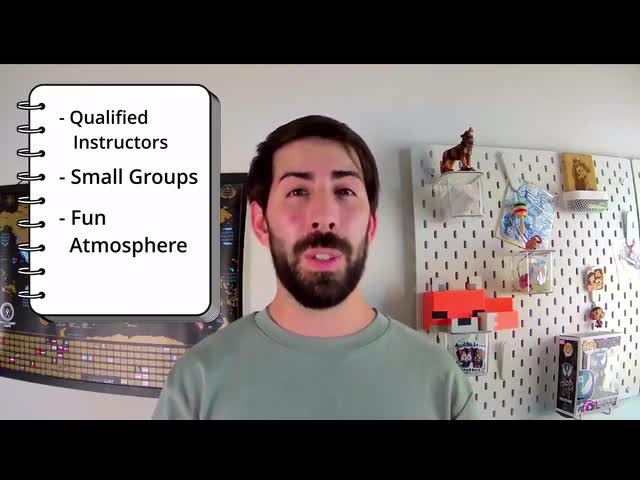First Month Free — use code BTS40. Offer valid for 80 credits plan.Learn More
This class is no longer available, but we found something similar!
130


Scratch Programming: Level 2 Coding Projects - FLEX
Completed by 37 learners
Ages 7-12
Live Group Class
No live video meetings
4 weeks
1-18 learners per class
What’s included

Homework
Students will be asked to extend projects and alter them to their style. We will then share projects with each other and students should leave feedback on other students projects.Class Experience
Please note this is the flex class. There are NO live meetings for this class. The material will be posted weekly and participation will be done through Outschool & Scratch. You can view the material during the week at your own convenience. FLEX classes are great for Scratch Tutorials/Classes because there is plenty of time to explain the code, finish the program, and go back in case you missed a step. So during a FLEX class you will be able to watch the whole process on how the games are made and the explanations! ***Before taking this class, if you don’t have Scratch experience, I recommend you take my other flex class for beginners: "Scratch Programming: Lvl 1 Coding Projects - FLEX". It will help you understand beginner concepts and how to create simple games. Basic: https://bit.ly/2QQUgwA LVL 1 FLEX: https://bit.ly/3tyF7yH LVL 3 FLEX: https://bit.ly/3v1DCct *** OVERVIEW: This is a 4 week project oriented course where students will be guided via video lessons that I have pre-recorded, along with optional project extensions and challenges related to the topics covered that week. I encourage everyone to attempt the optional extensions and share your code so that the group can provide feedback. Each week students will get access to: - A video detailing the step by step process on creating the project of the week and explaining the programming concepts - An extension to the project in the video. - Feedback on projects and on any questions the students have relating to the topics covered via the message board STUDENT to STUDENT INTERACTION: Since we can share projects on Scratch, students will post a link of their extended projects when they finish. Then the other students should play their altered game and leave a comment on what they think or like about the students' extensions. WEEKLY LESSON PLAN: Week #1 - Whack-A-Shark Summary: A game that resembles the famous whack-a-mole but instead of moles we will use other sprites! Week #2 - Passenger Pick Up Summary: An interactive car game where we have to pickup passengers before an angry bear gets us! Week #3 - Platform Jumper Summary: A game where a creature jumps from one platform to another to reach his goal. Week #4 - Gem Collector Summary: A story/game where a dragon leaves home to collect gems. Students will learn different programming concepts including how to: ■ Use conditionals & loops ■ Use operators (>, <, AND, OR,…) ■ Use Functions for more efficient and clean code ■ Create conversations between sprites ■ Design more interactive games ■ Alter backgrounds depending on the situation ■ Etc.
Learning Goals

■ Understanding intermediate programming concepts
■ Creating clean and efficient code
■ How to create games & stories
■ How to create projects that interact with usersOther Details

Supply List
1. Students will have to have a Scratch account. You can create one here: https://scratch.mit.edu/ 2. Students should have experience with Scratch.

External Resources
In addition to the Outschool classroom, this class uses:
Offered by
Teacher expertise and credentials

1 teacher has a Bachelor’s degree
Bachelor’s Degree in Art History, Criticism and Conservation from Escuela de Conservación y Restauración de Occidente
I have a degree in Computer Engineering Technology as well as previous experience as a Software Developer and teaching children how to code in coding bootcamps.Reviews
Are you planning to use state funding, such as an Education Savings Account (ESA), Micro-grant or scholarship to help pay for your learner’s education?

